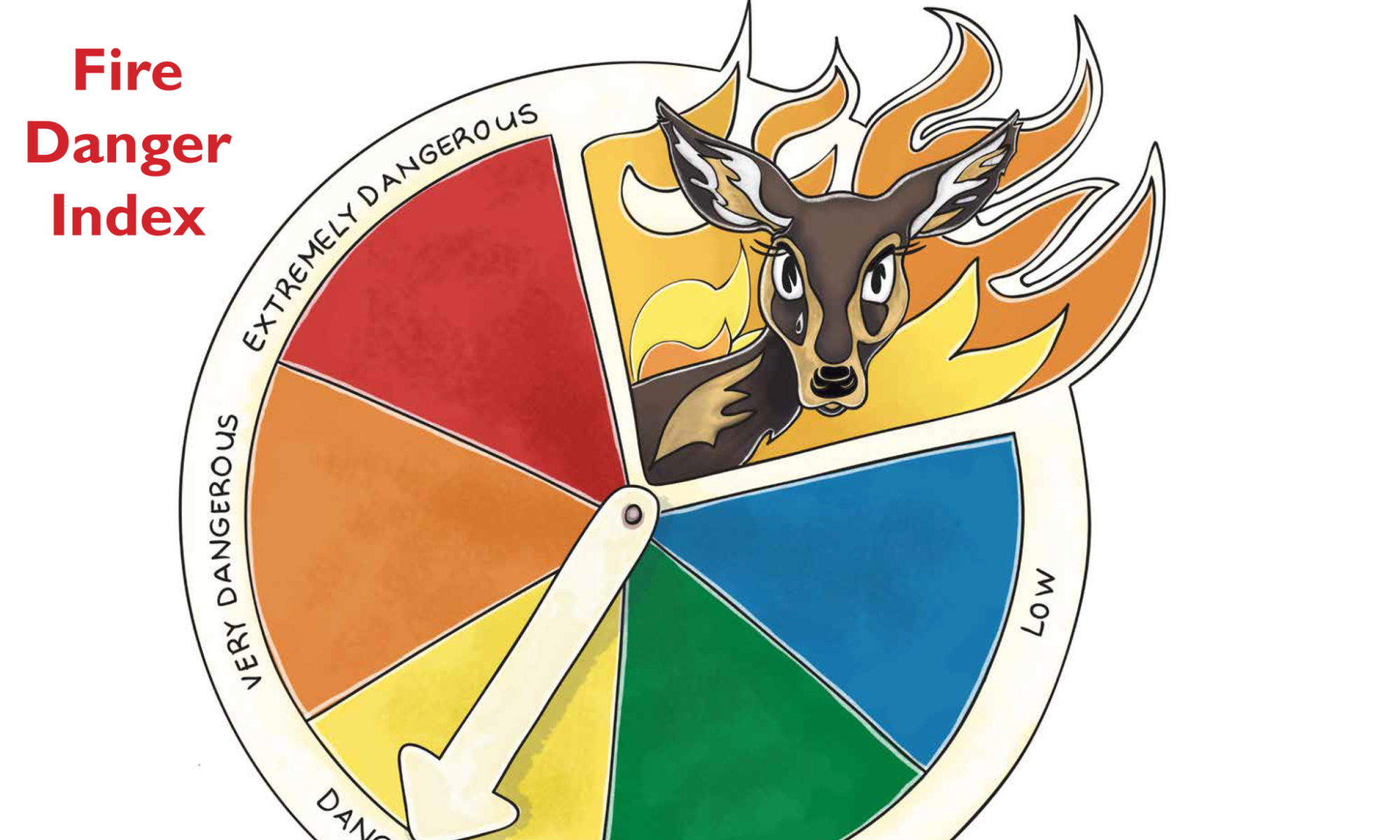
CapeNature Urges the Public to Report Fire and Smoke on Sight
From April 2022 to March 2023 CapeNature responded to 70 wildfires which burned nearly 28 000 hectares compared to 87 fires burning almost 30 000 hectares in the same period in 2021 and 2022. CapeNature was able to contain 28.6% of fires where less than 10 hectares were burned and 64.2% where less than 100 hectares were burned. These results are only possible due to the collaborative effort of the Provincial Disaster Management, District and Local Municipalities, Fire Protection Associations, the Working on Fire Programme, Volunteer Wildfire Services and other fire contractors, neighbouring landowners, and the public.
Maintaining the low area burned is a significant accomplishment for CapeNature and its excellent partner relations where the collaborative effort of the Large-Scale Rapid Initial Attack Approach (LASRIA) is effective. Using this approach, all fires are responded to promptly and are fought with all available resources and personnel. The response is handled in such a way that the fire does not become an extended duration fire, lasting multiple days requiring many resources.
According to Dr Razeena Omar, CEO of CapeNature, “The public’s role in the success of the Large Scale Rapid Initial Attack should not be underestimated and cannot be emphasised enough. Fire agencies and their partners can only respond to a fire when it is brought to their attention. By alerting the relevant authorities quickly, we can respond to a fire before it becomes larger, increasing the chances of success, saving money, infrastructure and potentially even lives. LASRIA can mean the difference between minor damage and total devastation. I encourage people to save emergency numbers where it can be accessed easily. We appeal to the public to report smoke and fire the moment it is detected.”
CapeNature appeals to every person to do their part by practicing fire safety as we enter the warmer, drier months. Open fires, especially during hot, dry windy days, are a common cause of uncontrolled fires. This can be prevented by using only designated fireplaces and facilities, never leaving a burning or smouldering fire unattended, avoiding starting a fire when it is hot and dry and to not start fires next to roads and passes.
Of the fires responded to by CapeNature in the 2022/23 fire season, only 44,6% started on CapeNature protected areas with the remaining 65.4% ignited in mountain catchment areas and on private land. A total of 54,5% of fires were started by people, either through negligence or on purpose (braai and warming fires, fireworks, negligent and intentional ignitions), 10,4% started by mechanical means (machinery, heavy vehicles, cars, trains, welding, weapons, brush cutters, powerlines) and 1,3% through prescribed burning practices.
CapeNature manages more than 800 000 hectares of protected areas in the Western Cape of which most is part of the Cape Floral Region World Heritage Site. The Greater Cape Floristic Region is recognised as one of the most special places in the world for plants due to the diversity, density and number of endemic plant and animal species. These protected areas conserve the outstanding ecological, biological, and evolutionary processes associated with the distinctive vegetation, unique to region.
Fynbos plants, such as proteas, need fire to stimulate them to release their seeds which then germinate into new plants. However, many fynbos plants need more time to mature and set seed between fires and may be eliminated from these protected areas because of increased fire frequencies.
Fire can have a devastating effect on our natural resources and CapeNature appeals to the public to play their part in protecting our unique and special biodiversity. Dial 112 from a cell phone or 10177 from a landline to report smoke or fire.




